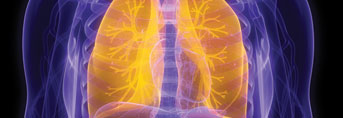Liver Fibrosis (NASH or others)
According to the National Digestive Diseases Information Clearinghouse (NDDIC), nonalcoholic steatohepatitis (NASH) prevalence in the U.S. is 2-5%. An additional 10-20% of Americans have fat in their liver, but no inflammation or liver damage, a condition called “fatty liver.” The underlying cause of NASH is unclear, but it most often occurs in persons who are middle-aged and overweight or obese. Many patients with NASH have elevated serum lipids, diabetes or pre-diabetes. Progression of NASH can lead to liver cirrhosis. Liver transplantation is the only treatment for advanced cirrhosis with liver failure. At this time, there is no treatment for NASH.
Preclinical Results
MN-001 administered orally once daily (10, 30, and 100 mg/kg) for 3 weeks, was evaluated in the STAM™ (NASH-HCC) mouse model of nonalcoholic steatohepatitis, as measured by liver biochemistry and histopathology, NAFLD activity score (NAS), and percent of fibrosis and gene expression.
MN-001, in a dose-dependent manner, significantly reduced fibrosis area compared with vehicle (p <0.01) as demonstrated by a reduction in liver hydroxyproline content, supporting MN-001’s anti-fibrotic properties. MN-001 significantly improved NAS (p <0.01), and this was most likely attributed to the reduction in lobular inflammation and hepatocyte ballooning, the latter being most notable. Hepatocyte ballooning is thought to be derived from oxidative stress-induced hepatocellular damage and is associated with disease progression of NASH. MN-001, in this animal model, improved NASH pathology by inhibiting hepatocyte damage (p <0.01) and ballooning (p <0.01).
Congruently, MN-001 was shown to down-regulate certain gene expression levels in the liver. At low and mid doses, MN-001 significantly down-regulated MCP-1 (p <0.01) and CCR2 mRNA (p < 0.01) expression levels compared to vehicle. Similarly, MN-001 significantly down-regulated Collagen type 1 (p <0.01) and TIMP-1 mRNA (p <0.001) expression levels at low and mid doses. These gene expression data imply that MN-001 prevents the formation of fibrosis in the NASH model.
Development Plans
Recent preclinical results provide compelling evidence that MN-001 warrants further evaluation for the treatment of NASH in humans. MediciNova has an open IND at FDA. Due to safety data from previous clinical studies of MN-001, FDA has approved the protocol for a Phase 2 study as the first clinical trial of MN-001 in NASH.



